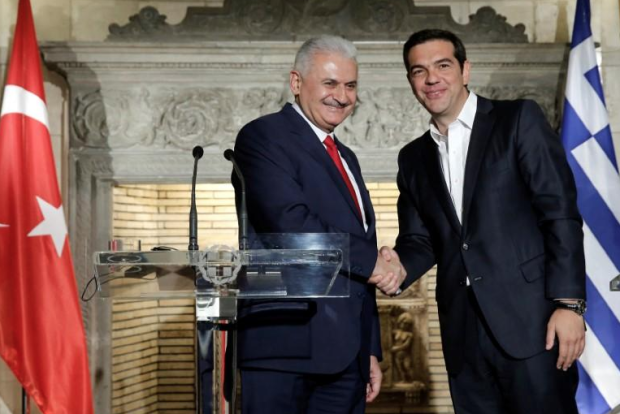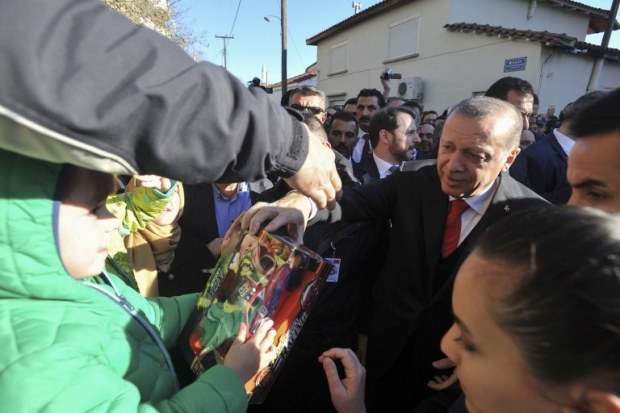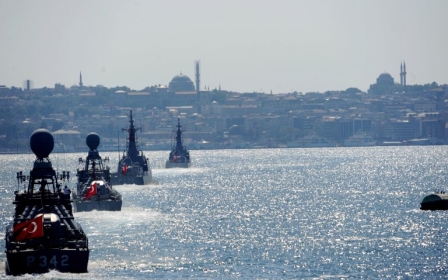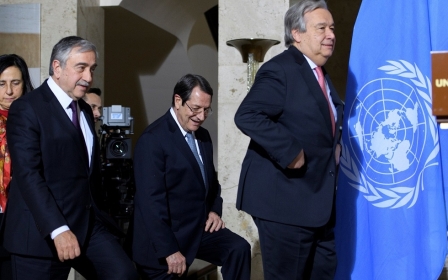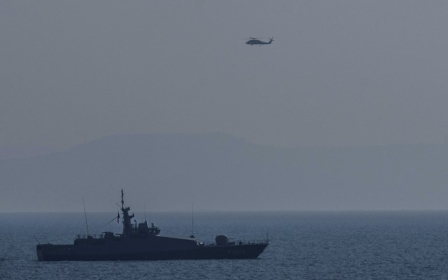Turkey’s EU ties face further strain as it confronts Greece in Aegean
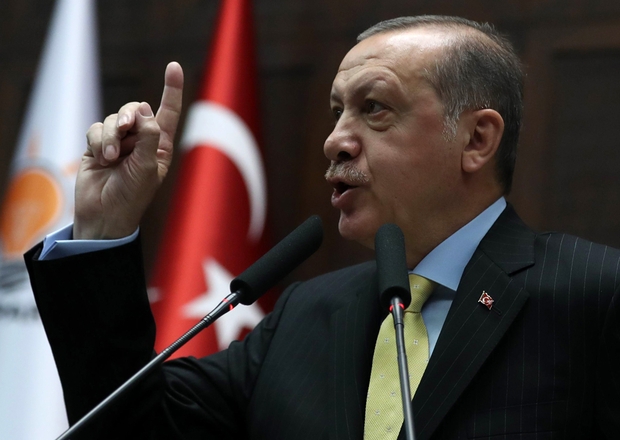
ISTANBUL, Turkey – Naval blockades in the Mediterranean; gunboats challenging each other in the Aegean. This would have been the last thing Ankara wanted as its military settles into what looks like an extended incursion against a Syrian-Kurdish militia group.
Long-standing rivals Greece and Greek Cyprus, however, appear determined not to allow Turkey calm waters in these seas.
Analysts have told Middle East Eye that escalating tensions in the Aegean and Mediterranean pose no real risk of spilling over into outright hostility but dent hopes of a much-needed reconciliation between the EU and Turkey.
Tensions spiralled last week after Turkish warships ringed an Italian gas drilling rig and blocked it from reaching a contested area designated by Greek Cyprus on 9 February.
On Monday, Greek and Turkish coastguard boats collided in the Aegean as months of showboating near the uninhabited islets of Kardak just off the Turkish coast threatened to get out of hand.
Both Athens and Ankara have accused the other side of provocative conduct and violation of international laws.
Their pluckiness lasts only until our planes arrive. No one should step out of line
- Recep Tayyip Erdogan, Turkish President
War between the two NATO members over control of the islets in 1996 was averted at the last minute through the intervention of then US president, Bill Clinton.
Turkish officials caught up in the heightened public nationalist sentiment which has been fuelled by the portrayal of the country being at war in northern Syria’s Afrin region, have not held back either.
Turkey’s military chief of staff, Hulusi Akar, on said on 10 February: “The Turkish Armed Forces is capable of controlling the entire Aegean and the eastern Mediterranean due to its high technological capabilities. We are capable of and have the power to both conduct an operation in Afrin and simultaneously control the Aegean.”
Turkish President Recep Tayyip Erdogan went even further on 13 February during a speech to his party’s lawmakers in parliament.
“Their pluckiness lasts only until our planes arrive. No one should step out of line,” said Erdogan and warned international oil and gas companies not to become political instruments of the Greek Cypriot side.
The southern Greek Cypriot side of the island, divided along ethnic lines since 1974, was accepted into the EU despite rejecting a UN-sponsored 2004 referendum on reunification, widely endorsed by the Turkish Cypriot north.
With access to potentially vast offshore reserves of hydrocarbons, the Greek Cypriot south has been keen to make deals with various international energy giants.
Greek Cypriot actions on the energy front also fit in with the EU’s strategy to diversify its energy supply routes and sources.
Turkey opposes such unilateral moves in contested areas, saying the rights of the internationally isolated northern Cypriots are being disregarded and violated.
An EU Commission spokesman on Tuesday said the EU was monitoring the situation in the Aegean closely and warned Turkey against “any friction, threat or action against an EU member state”.
The timing of these tensions couldn’t be worse as Turkey seeks to repair damaged ties with the EU.
In an attempt to fulfil a set of 72 criteria to gain visa-free travel rights to the EU’s Schengen zone for its citizens, Turkey last week announced it had added a clause to its expansive terror law where journalists won’t be prosecuted for “being critical” of the authorities.
Turkey’s reluctance to change the law was a significant obstacle to sealing the travel deal in 2016.
Tensions with Greece and Greek Cyprus will also make Thursday’s visit by Binali Yildirim to Berlin to attempt a return to normalcy in deeply strained relations with Germany, the EU’s powerhouse, more difficult.
Relations too entwined to fail
Kivanc Ulusoy, a professor at Istanbul University’s political science faculty, who specialises in Cypriot affairs, told Middle East Eye the Greek side was playing to a domestic gallery but could very well end up hurting Turkey’s reconciliation with the EU.
“This is clearly Greek provocation. I am not entirely sure whether it has to do with the drilling situation in Cyprus. But there is a large amount of domestic politics involved here. And it has the potential to damage broader Turkish-EU ties,” he said.
According to Ulusoy, stirring domestic populism on the Greek side was the only reason to unsettle relations that have been stable and relatively friendly since 2004.
Saying we will send fighter jets to silence you is just for domestic consumption but it does reveal a mentality
- Yusuf Kanli, Ankara-based Journalist
Yusuf Kanli, a veteran Ankara-based journalist from northern Cyprus, agreed. “The Greek Cypriot actions have been going on for years. This drill was not sudden. It was planned two years ago,” Kanli told MEE.
“The tensions over the islets of Kardak also go back to the post-Lausanne Treaty era. The two islets, close to the Turkish coast, were not even covered by Lausanne. They were given to the Greeks by the Italians who were occupying them then. It has been a thorny issue ever since. And such showboating plays well in domestic Greek politics too,” he said.
Kanli, however, warned that the Turkish tone could do more harm than good.
“Saying we will send fighter jets to silence you is just for domestic consumption but it does reveal a mentality, which is now being applied at home and in foreign policy,” said Kanli. “We have a saying in Turkish that perfectly depicts this mentality: to a carpenter everything looks like a nail [that needs to be hammered down].”
Another Turkey-based Cyprus expert who wanted his name withheld told MEE that Turkish pressure on the Turkish-Cypriot administration in the last three or so years to ignore rights violations in an attempt to negotiate a reunification deal at any cost were behind Greek Cyprus and Greece acting with such impunity.
“Such careless moves by the Greek Cypriots and even Greece are not unexpected. For many years now the Turkish-Cypriot administration has not been protecting current and future Turkish Cypriot rights in the hope of a deal and is 'encouraged' by Ankara as well,” the expert said.
However, Turkey and the EU have no option other than to get along in the end, according to Kanli, who said even these tensions would eventually have to be considered as minor annoyances by both sides.
“The EU and Turkey both need each other too much to allow ties to collapse completely. An EU without Turkey would resemble the announcement of a 21st-century crusade. And a Turkey without the EU and the West would be just another Middle Eastern country. Neither side can allow showboating to let things go that far.”
New MEE newsletter: Jerusalem Dispatch
Sign up to get the latest insights and analysis on Israel-Palestine, alongside Turkey Unpacked and other MEE newsletters
Middle East Eye delivers independent and unrivalled coverage and analysis of the Middle East, North Africa and beyond. To learn more about republishing this content and the associated fees, please fill out this form. More about MEE can be found here.


